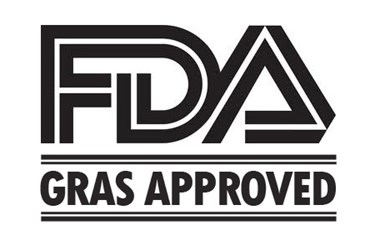Are GRAS Determinations Undermining The FDA?
By Isaac Fletcher, contributing writer, Food Online

Tasked with keeping consumers safe from all varieties of food risks, the FDA is under continuous pressure to stay informed about what exactly is in the food supply, but industry GRAS determinations are making that objective exceedingly difficult to reach.
The FDA has historically faced some difficulty when it comes to the regulation of food additives. When the FDA was first established as a means to protect consumers from food safety risks, it was directed by congress to require food additive manufacturers and food processors to pretest all potentially unsafe substances added to foods. The idea was to create a system wherein substances that were clearly safe, such as vinegar, can be used without pretesting. This established the method of excluding substances that are “generally recognized as safe” (GRAS) from food additive regulation.
In today’s food regulation landscape, there are some concerns that the GRAS provision is allowing for new substances to end up in foods without first having been subjected to an additive approval process. For example, in 2014, there was only one food additive petition submitted to the FDA, while there are thousands of GRAS chemicals used in food without FDA review.
In some cases, FDA officials have expressed frustration with the GRAS approval process and claim that in order for the FDA to have the power to force companies to submit GRAS notifications, legislative changes would need to take place. Currently, food companies can disclose to the FDA the details of their GRAS determinations, but do not face a legal requirement to do so. It is difficult for the FDA to carry out its primary objective of ensuring food safety when it does not have the details of what substances the food contains.
When GRAS determinations can be made within the industry without regulatory oversight, the task of policing the line between substances that are GRAS and those that require additive approval becomes impossible. Furthermore, in some cases, the system provides a loophole for companies to make GRAS determinations for substances that are actually additives. This presents distinct issues with regard to food safety, since Congress originally intended that the only way for novel substances to be approved would be through a process of food additive petition. The FDA was also intended to conduct ongoing reassessments of substance safety as scientific understanding of the substances evolved. When substances can slip into food without disclosure, the goals of Congress and the FDA are undermined.
The secrecy surrounding GRAS determinations means that important questions regarding public health issues, such as obesity, cannot be adequately asked nor answered. It may be easy to pin GRAS shortcomings on the FDA and argue that the agency is not doing enough to enforce additive disclosure. However, in order to allow for the FDA to adequately monitor and enforce additive disclosure, a review of the related regulatory legislation may be a necessary step. But, even if this step to “fix GRAS” is taken, will the FDA have the funding and manpower to adequately meet the need?
